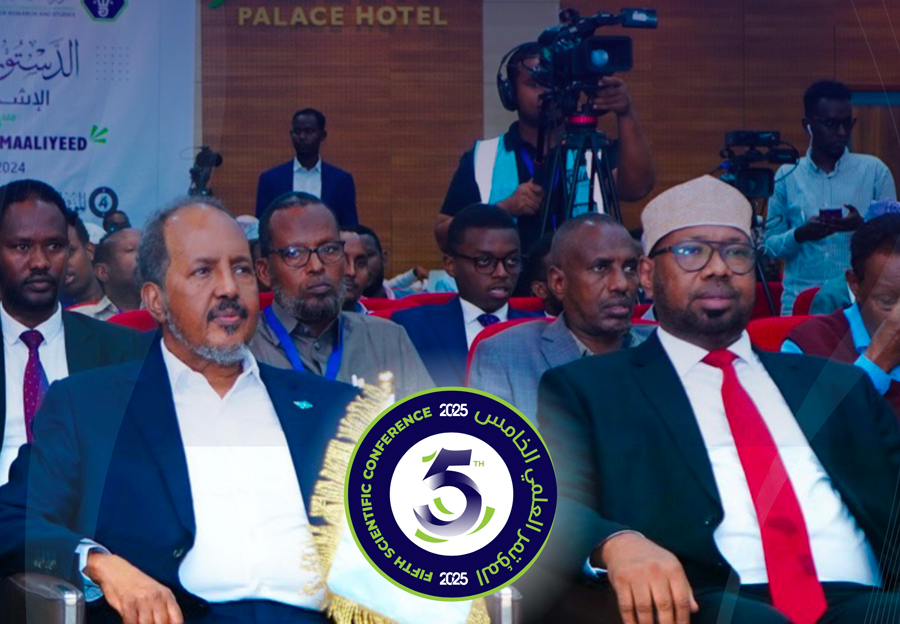INTRODUCTION
Federalism—conceptually, legally, and administravely—remains one of the most
complex and debated governance systems of our me. In Somalia, it occupies
a parcularly sensive posion at the heart of the naonal dialogue on unity,
state-building, and equitable power sharing. Despite its promise, Somali federalism
connues to face deep conceptual ambiguies, structural tensions, and weak instu-
onal pracce.
Since its adopon, Somalia has oscillated between the aspiraon to build an
inclusive system that enhances parcipaon and equitable power distribuon, and
the reality of polical fragmentaon and localized loyales. These contradicons
have produced recurrent crises between the Federal Government and Member
States, undermining naonal cohesion, governance effecveness, and long-term
stability.
Against this backdrop, the Maqasid Center for Research and studies at its Fih
Annual Conference, poses a pivotal queson:
“Somalia’s Federalism: Between Polical Deadlock and the Search for Inclusive
Partnership.”
This queson lies at the intersecon of good governance, naonal identy, and
social jusce—principles central to the higher objecves (maqasid) of governance in
Islamic jurisprudence. The jurisprudence of good governance (fiqh al-hukm al-salih)
offers not only a framework for reflecon but also a methodology for reform bridging
normave principles with praccal statecra, and tradion with contemporary
realies.
The conference seeks to move the debate beyond polical rhetoric toward
aconable scholarship and policy-oriented dialogue. It will explore how Somali
federalism can evolve into a system that strengthens stability, jusce, and inclusive
naonal partnership, while drawing from both Islamic jurisprudenal insights and
comparave governance experiences.
Download the file (ENGLISH AND SOMALI)…5ht Conference
shirka afsoomaali

